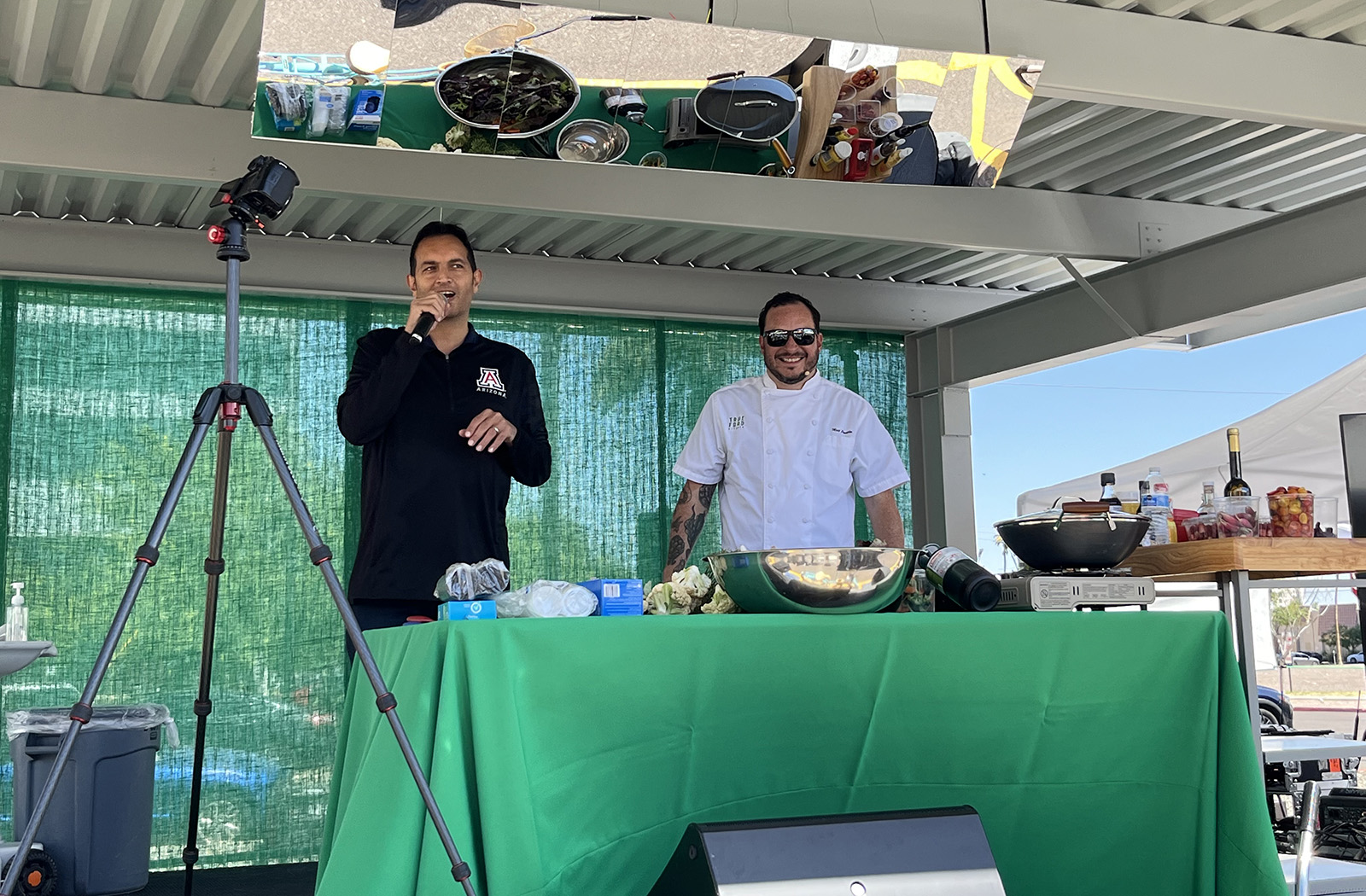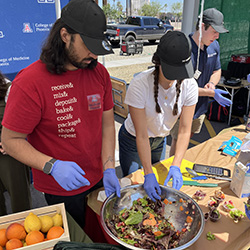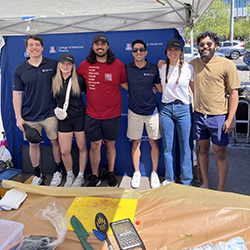
Phoestival of Health Brings Fresh Produce and Food Experts to Downtown

The Phoenix Bioscience Core and the Downtown Phoenix Farmer’s Market collaborated to create the first annual Phoestival of Health.
The event focused on improving health and featured fresh produce from community farmers, access to nutrition experts, health care professionals and live cooking demonstrations.

“Our diet is the number one risk factor for premature preventable disease worldwide, and it’s something that we can modify,” said
Shad Marvasti, MD, MPH (Dr. Shad), director of Integrative Medicine at HonorHealth and the founding director of the Culinary Medicine Program at the University of Arizona College of Medicine – Phoenix.
The goal of Phoestival of Health is to teach Phoenicians tips on living a healthier lifestyle through food. The University of Arizona College of Medicine – Phoenix’s Culinary Medicine Program, in a partnership with True Food Kitchen, led one of the cooking demonstrations.
Dr. Shad said he believes, “We can use food as medicine to treat, prevent or, at times, reverse chronic disease.”
Dr. Shad and Matthew Padilla, chef and VP of Culinary Innovation at True Food Kitchen, prepared a salad with dressing created from scratch and spicy Korean stir fry using the ingredients from local farmers.
True Food Kitchen is a national network of restaurants with multiple locations in Arizona. Founded by Dr. Andrew Weil, it develops its menu seasonally from responsibly sourced, minimally processed foods. Dr. Shad said True Food Kitchen provides guests with delicious food while using the healthiest possible ingredients.
“Being able to partner with True Food Kitchen and help roll out some content about their new ingredients, it’s a privilege for me,” Dr. Shad said. “To be able to teach this community how to use food as medicine every day is really important to me.”
Among the student volunteers at the event were Murad Farooqi and Jacqueline Kunesh, two first-year medical students at the college. Kunesh said she joined the college’s Culinary Medicine program because it involved something she was passionate about at a young age.
“I’ve always viewed food as medicine and as a way to make yourself feel better,” Kunesh said. “This club aligned with my interests and how I view medicine, so that’s why I got involved.”
One of the things Kunesh learned in her first year of medical school is that calories in and calories out are not all that matters in one’s diet. Kunesh said she has learned how foods can be beneficial to one’s health.
“Good fats — such as cold pressed extra virgin olive oil — can do great things for your body, and that’s something I learned through Dr. Marvasti,” Kunesh said. “Quality of food has a big impact on how our body functions.”

Changing your diet can seem like a daunting task, but people can make simple changes to their routine to achieve a healthier lifestyle. Farooqi said he stopped purchasing junk food and switched to snacking on fresh foods.
“For me, I just snack less and don’t buy processed foods because if I have those foods in my house, I will eat them,” Farooqi said. “If I don’t want to eat junk food, I just will not buy it, even if I’m craving it.”
Dr. Shad said that one barrier people face when it comes to eating is that many unhealthy foods are cheap and widely available. However, for people participating in the Supplemental Nutrition Assistance Program, there is access to more buying power for fresh ingredients at the Downtown Phoenix Farmer’s Market.
“People participating in the food stamps program can get two-for-one benefits by shopping at the farmers market,” Dr. Shad said. “Every dollar they get from the program becomes $2 when they shop at the market.”
The Culinary Medicine Program at the college aspires to use food as medicine and to educate through service learning with an understanding of food systems and food policies as social determinants of health.
About the College
Founded in 2007, the University of Arizona College of Medicine – Phoenix inspires and trains exemplary physicians, scientists and leaders to advance its core missions in education, research, clinical care and service to communities across Arizona. The college’s strength lies in our collaborations and partnerships with clinical affiliates, community organizations and industry sponsors. With our primary affiliate, Banner Health, we are recognized as the premier academic medical center in Phoenix. As an anchor institution of the Phoenix Bioscience Core, the college is home to signature research programs in neurosciences, cardiopulmonary diseases, immunology, informatics and metabolism. These focus areas uniquely position us to drive biomedical research and bolster economic development in the region.
As an urban institution with strong roots in rural and tribal health, the college has graduated more than 1,000 physicians and matriculates 130 students each year. Greater than 60% of matriculating students are from Arizona and many continue training at our GME sponsored residency programs, ultimately pursuing local academic and community-based opportunities. While our traditional four-year program continues to thrive, we will launch our recently approved accelerated three-year medical student curriculum with exclusive focus on primary care. This program is designed to further enhance workforce retention needs across Arizona.
The college has embarked on our strategic plan for 2025 to 2030. Learn more.